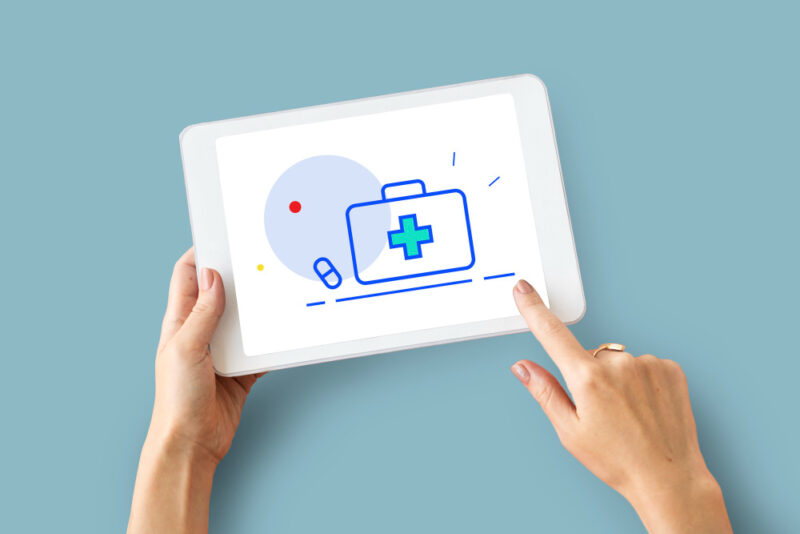HIPAA is an important piece of legislation that protects the privacy and security of medical information in the United States. It is critical to protect patients’ personal information provided in healthcare settings. The approach to developing a HIPAA compliant app must be serious and responsible.
Here are some of the most important roles:
- Protecting privacy: requires institutions and everyone who works with patient medical information to protect privacy.
- Providing security: requires clinics to use appropriate technology and procedures to protect data from unauthorized access and use.
- Facilitating access: grants the right to access and control using one’s information.
- Standardizing procedures: sets standards for processing, storing, and transferring data, making it easier to share info across institutions.
- Increasing trust: helps to increase the credibility of the clinic by providing confidentiality and security.
It is an important piece of legislation that plays a crucial role in protecting as well as increasing trust in healthcare. It helps protect people’s rights and makes it easier to share information, which helps improve the quality of care.
Rules for creating a HIPAA compliant app
When developing a project that will use or process health information, a lot of rules must be followed. Some of them are:
- Maintaining security requirements to protect against unauthorized access and use.
- Protecting the confidentiality of information that is transmitted or processed there.
- Adhering to standards for processing, storing, and transmitting medical histories, etc.
- Providing control and data management capabilities.
- Requirements for storage in a safe and secure location.
- Reporting on protection and use of medical info and compliance with standards.
- Providing proper access to prevent unauthorized access.
- Everyone who has access to personal data should receive regular privacy training.
Compliance with all rules is critical to protecting patient privacy and security. Proper compliance will help prevent breaches.
Types of HIPAA compliant apps
There are many types of these projects that can use or process information. Some of them are:
- Health Care: allows you to track your health and the health of your loved ones, including personal health information, medication intake, lab results and more.
- For monitoring and diagnostics: can be used to track health and diagnose diseases, such as with electrocardiograms, scanners, or devices used to measure blood glucose levels.
- For clinic communication: allows users to interact with a doctor, for example, to make appointments, get prescriptions, or get consultations from doctors.
- For data management: enable users to manage their information, including records of doctor visits, lab results, and more.
- For staff training and education: used to train staff, for example, to train procedures or teach new technologies.
- For analysis: used for analysis, including research and data analysis to identify trends and patterns.
All of these types of projects that handle info must meet confidentiality requirements.
How to develop a HIPAA compliant app
Development requires a careful approach and following specific rules and regulations. Here are a few steps that can help:
- First, a plan must be developed that defines how personal data will be handled and stored. what measures will be in place to protect that information, and how possible security issues will be addressed.
- It is important to develop an authentication and authorization system that makes sure that only authorized users can gain access. This may include the use of passwords, multi-factor authentication, biometrics, etc.
- Secure connections, such as SSL or TLS protocols, should be used to ensure data transfer security. This will help protect the info during transmission.
- Everything should be stored in a secure location, including protection against unauthorized access. This can include data encryption, access control, and layered security.
- All users with elevated levels of access should be trained and coached according.
- It is important to follow the policies established in the plan and to regularly review them.
- The platform must be able to audit and monitor access to medical history to make sure that all access is in compliance with policies and requirements.
When you don’t need to create a HIPAA compliant app
It is not always necessary to create a project that is compliant. Here are a few instances when you don’t need to:
- If you’re not working with medical information, you don’t need to worry.
- If the project is not intended for medical use, you don’t need to create an HIPAA compliant app either. For example, if you’re working on nutrition or fitness tracking, you don’t need that.
- If you are collecting info but will not use it for medical purposes, then you are not required to create an HIPAA compliant app.
- If you don’t intend to share the data with third parties, you don’t have to create an HIPAA compliant app.
In any case, if you have any doubts about whether you need to comply with a strict regulation, it is advisable to contact experts and consult with them.
Conclusion
Developing a service is essential to providing patients’ personal health information. In the process, it is necessary to follow a lot of rules and recommendations, such as: data encryption, installation of authorization and authentication, regular updating of the software, etc.
There are different types of modern systems that must comply with regulations — for diagnosis, treatment, patient care, etc.
However, it is not always necessary. For example, if you don’t collect, process or store medical info, then you don’t need to worry about following regulations. There are a lot of features and guidelines to consider to protect privacy. In general, compliance with regulations is essential to guarantee patients and to preserve your company’s reputation.
It is also important to be prepared for a serious financial investment. Implementing projects of this level requires a responsible approach. So you will have to spend money on specialized specialists, lawyers, consultants, etc. But the result will definitely be worth the effort. Since the field is quite complex and specific, not many startups dare to invest here. And this only means that you will have a minimum of competitors. So everything is in your hands. The more responsibility you take on, the more profitable the business will be.










